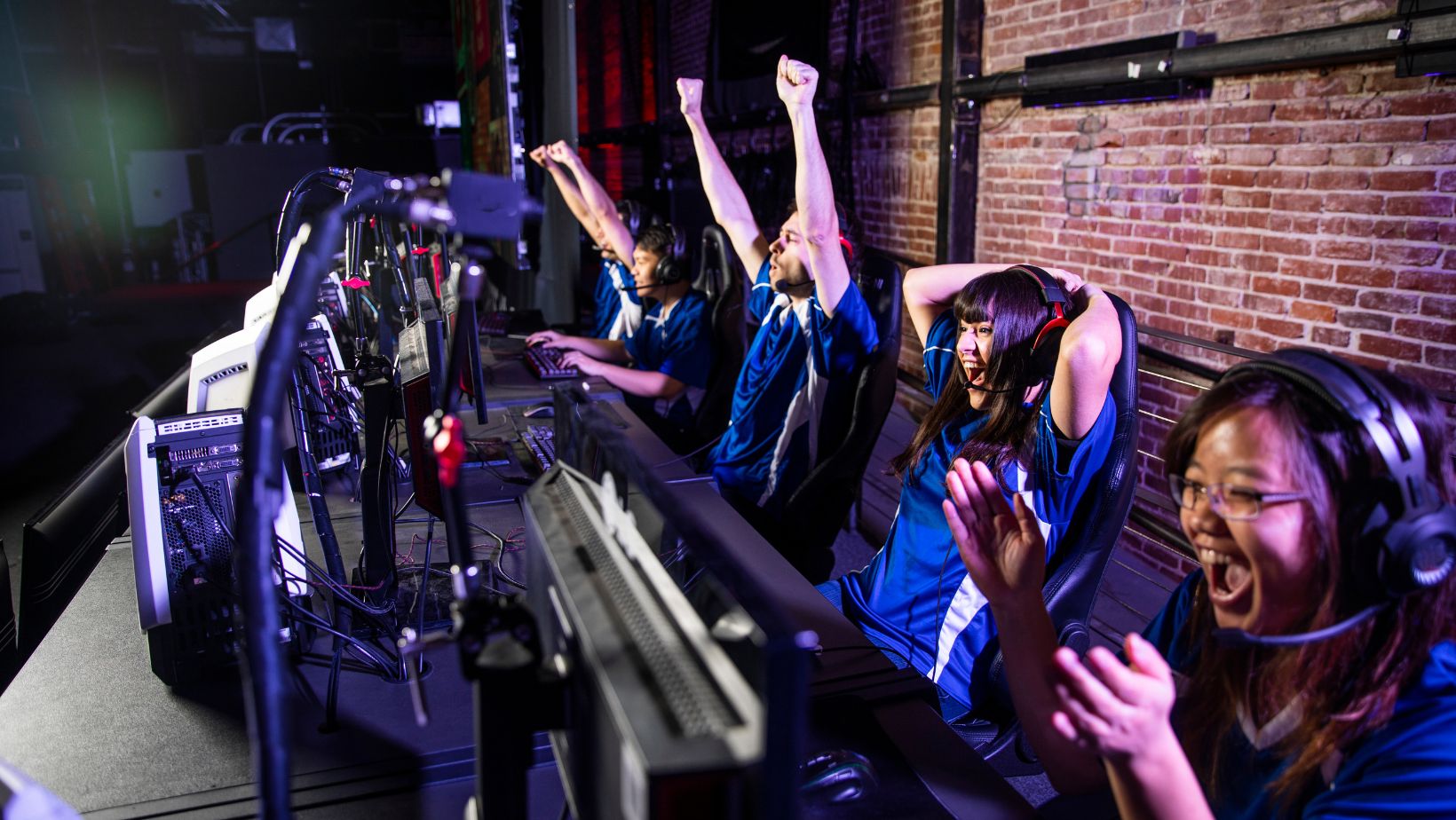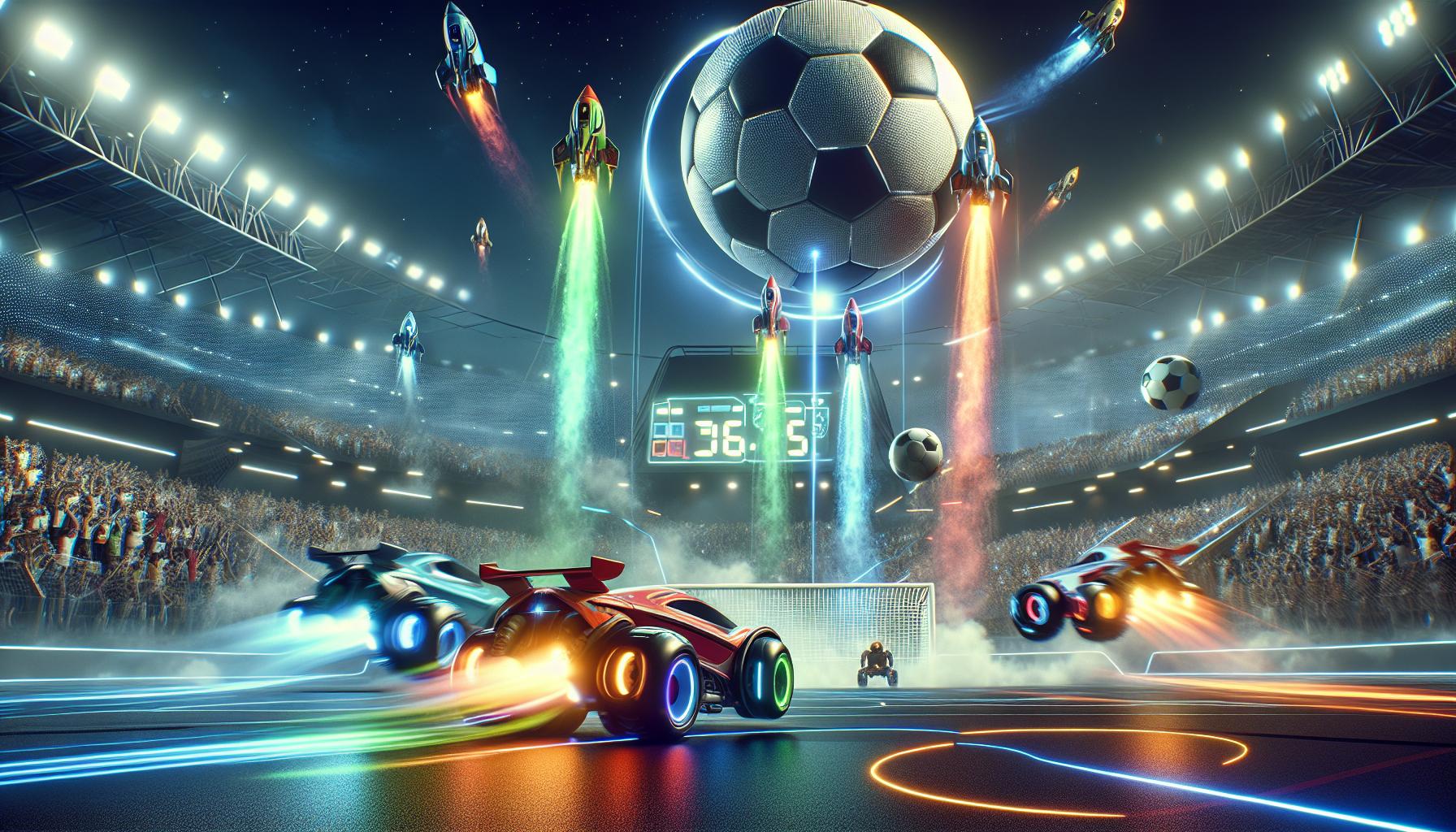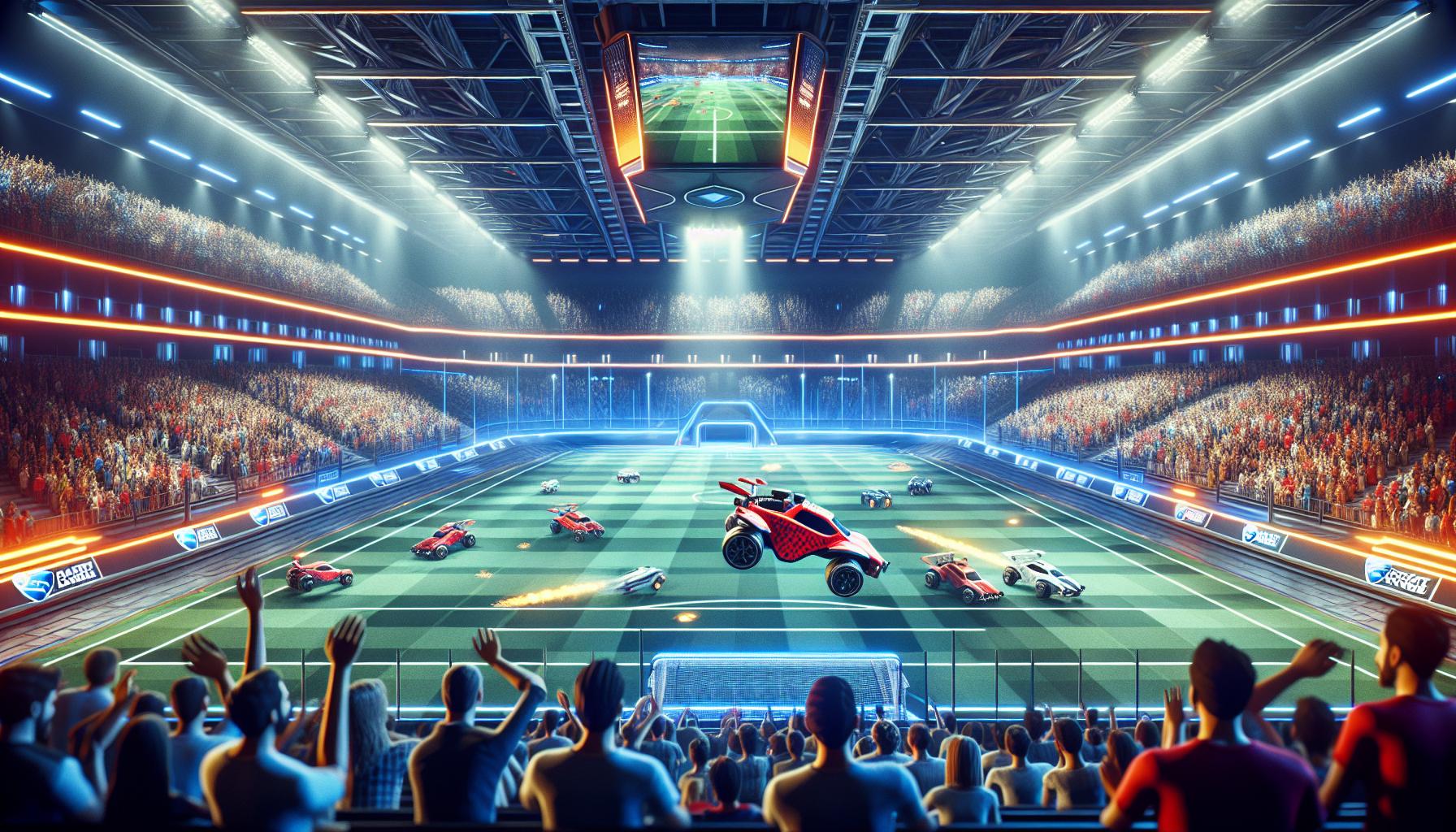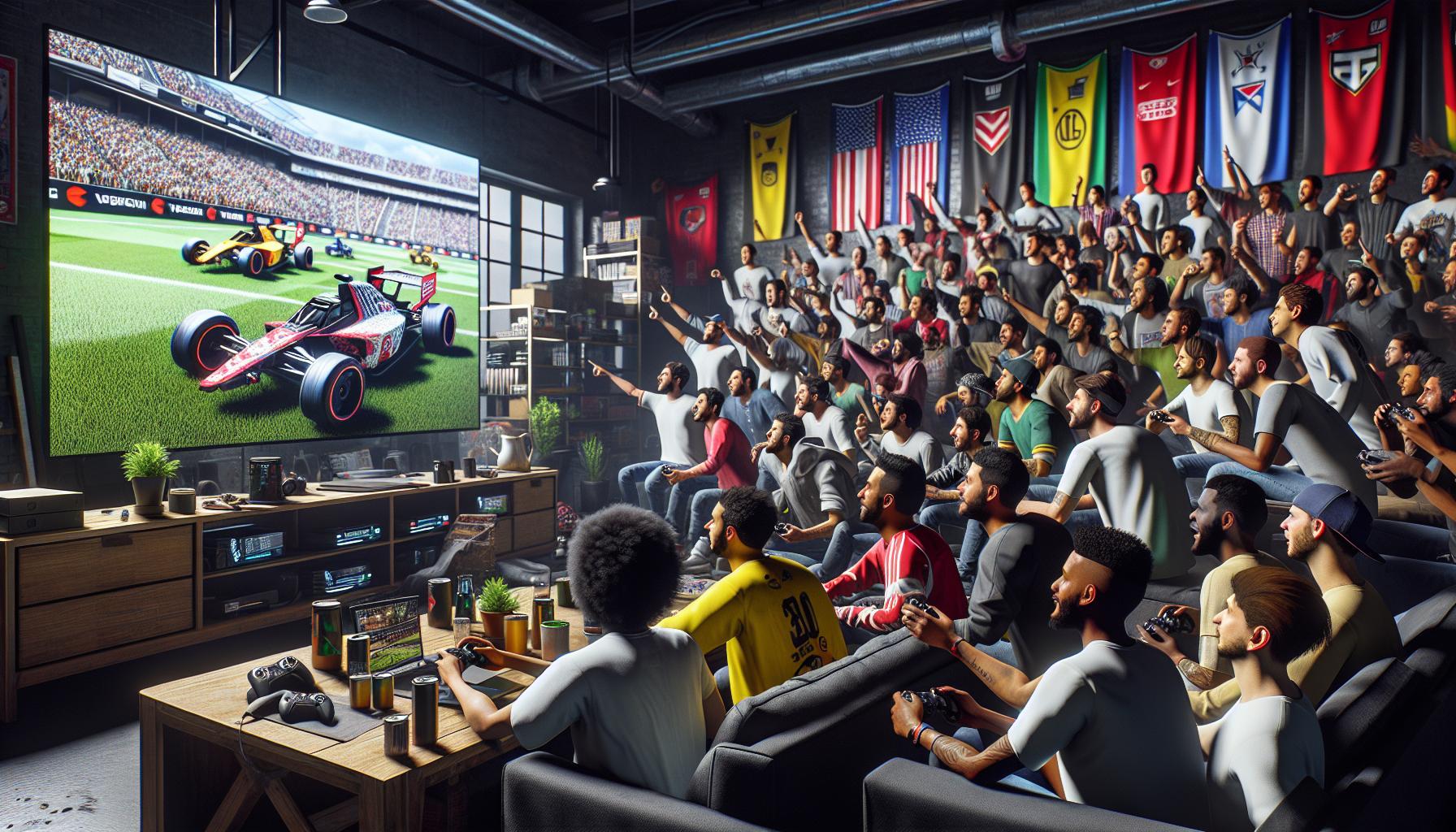 In the fast-paced world of esports, few titles have captured the excitement of gamers and fans alike like Rocket League. This unique blend of soccer and high-octane vehicular action has transformed into a global phenomenon, drawing millions of players and viewers. With its accessible gameplay and deep competitive mechanics, Rocket League has carved out a significant niche in the esports landscape.
In the fast-paced world of esports, few titles have captured the excitement of gamers and fans alike like Rocket League. This unique blend of soccer and high-octane vehicular action has transformed into a global phenomenon, drawing millions of players and viewers. With its accessible gameplay and deep competitive mechanics, Rocket League has carved out a significant niche in the esports landscape.
As tournaments grow in scale and prize pools reach staggering heights, the competitive scene is thriving. Players showcase their skills in high-stakes matches, while teams battle for supremacy in leagues around the world. The community’s passion fuels the game’s popularity, making it an essential part of the esports conversation. Whether you’re a seasoned pro or a curious newcomer, Rocket League offers an exhilarating experience that keeps everyone on the edge of their seats.
Key Takeaways
- Unique Gameplay: Rocket League combines soccer dynamics with vehicular action, appealing to both casual and competitive players through diverse game modes and accessible mechanics.
- Thriving Competitive Scene: Major tournaments like the Rocket League Championship Series (RLCS) offer significant cash prizes and showcase elite skills, fostering intense rivalry among top teams and players.
- Community Engagement: A passionate community thrives on platforms like Twitch and YouTube, where fans and players share live gameplay, strategy tips, and connect through social media interactions.
- Innovative Strategies: The competitive landscape is evolving with teams employing data analytics, coaching, and creative tactics, pushing players to constantly adapt and refine their gameplay.
- Technological Advancements: Innovations in gaming hardware and streaming technology enhance player performance and viewer experience, paving the way for Rocket League’s continued growth in esports.
- Emerging Talent: New players and teams are consistently entering the scene, breaking into competitions and redefining expectations, showcasing the dynamic nature of the Rocket League esports arena.
Esports Rocket League
Esports Rocket League features intense competition combining soccer dynamics and vehicular gameplay. Players control cars to hit a large ball into the opponent’s goal, resulting in fast-paced action and strategic gameplay. The game’s mechanics support casual enjoyment alongside professional-level play, attracting diverse player skill levels.
Tournaments showcase top talent, with events like the Rocket League Championship Series (RLCS) offering substantial cash prizes and global recognition. RLCS consistently draws large viewership, highlighting the game’s growing popularity. Teams, such as Team BDS and NRG Esports, contribute to competitive excellence through rigorous training and teamwork.
The community thrives on various platforms, with players sharing strategies, highlights, and engaging in discussions. Esports Rocket League fosters teamwork and communication among players, emphasizing coordination and synergy to achieve victory. Platforms such as Twitch and YouTube facilitate live streaming and content sharing, enhancing community interaction and support.
With its dynamic format and competitive spirit, Rocket League has solidified its place in the esports scene, continuously evolving as new players and teams emerge, pushing the boundaries of gameplay and strategies.
Gameplay Mechanics

Rocket League features a unique blend of soccer and vehicular mechanics that create an exciting and competitive gaming experience. Understanding the gameplay mechanics is essential for both players and fans.
Basic Game Rules
Rocket League involves two teams, each composed of one to four players, competing to score more goals than the opposing team within a timed match. A standard match lasts five minutes, with a sudden-death overtime period if tied. Players control rocket-powered cars, aiming to hit a large ball into the opponent’s goal. Goals are worth one point, and matches are typically played in a best-of-five or best-of-seven format during tournaments. Fouls and physical contact are allowed, but excessive aggression may lead to penalties in competitive play.
Game Modes
Rocket League offers several game modes that enhance the competitive landscape.
- Casual Mode: This mode features unranked matches where players can practice skills without the pressure of rankings.
- Competitive Mode: Players engage in ranked matches, earning points to climb the leaderboard in various skill tiers.
- Hoops: A basketball-inspired mode in which players score points by shooting the ball into a hoop.
- Rumble: This mode introduces power-ups that can change the tide of the game, adding an unpredictable element.
- Drop Shot: Players aim to break the floor panels of the opponent’s side through ball control, creating new scoring opportunities.
Each mode offers unique challenges and opportunities for teamwork and strategy, catering to a diverse audience of players and fans.
Competitive Scene

The competitive scene of Rocket League features intense rivalry and a variety of tournaments, showcasing some of the best talents in esports. This dynamic environment attracts teams and players from around the world, making it a significant component of the esports landscape.
Major Tournaments
Rocket League hosts several prestigious tournaments that highlight the skill and teamwork of its players. The Rocket League Championship Series (RLCS) stands out as the premier competitive league. Founded in 2016, the RLCS offers annual seasons culminating in world championships, where teams compete for prize pools that often exceed $1 million. Each season includes regional qualifiers and playoffs, providing pathways for underdog teams to rise to prominence. Other notable tournaments include the Intel World Open and DreamHack tournaments, which also draw substantial viewership and participation, further expanding the competitive framework of the game.
Top Teams and Players
Numerous teams and standout players dominate the Rocket League competitive scene. Teams like Team BDS and NRG Esports exemplify skill and strategy, consistently performing well in major tournaments. Key players include Garrett “GarrettG” Gordon from NRG Esports and Yanis “Alpha54” Champenois from Team BDS, known for their exceptional mechanics and in-game decision-making. These athletes train rigorously, practicing for hours daily to refine their skills and teamwork. The emergence of talents like Jstn and Ayyjayy showcases the evolving nature of player capability within the esports community, as newer players continue to push the boundaries of competitive gameplay.
Community and Fan Engagement

The community surrounding Rocket League plays a vital role in its success, with fans actively participating in various forms of engagement. From streaming to social media interactions, the passionate fanbase contributes significantly to the game’s popularity.
Streaming and Content Creation
Streaming platforms such as Twitch and YouTube serve as primary venues for Rocket League content. Fans and players create engaging streams showcasing gameplay, tutorials, and live commentary. Popular streamers, including Garrett “GarrettG” Gordon and Jstn, attract thousands of viewers, fostering a sense of community. Furthermore, content creators share tips, tournaments highlights, and unique challenges, enhancing fan interactions. Collaborative events like community tournaments and charity streams promote continuous engagement and collaboration within the growing Rocket League community.
Social Media Presence
Rocket League’s presence on social media platforms enhances fan engagement and communication. Official accounts on Twitter, Instagram, and Facebook share updates, tournament highlights, and player interviews, keeping fans informed and connected. Fan interactions occur frequently through polls, contests, and discussions, allowing the community to feel involved in the game’s development. Popular hashtags like #RocketLeague and #RLCS encourage fans to share their experiences and connect with others. Esports teams and players also use social media to build personal brands, interact with fans, and promote upcoming events, further solidifying community ties.
Future Of Esports Rocket League
Esports Rocket League is on the brink of exciting developments, with evolving strategies and technological advancements shaping its future.
Evolving Strategies
Strategies within Rocket League continually evolve as players analyze gameplay patterns and learn from each other. Teams adapt their tactics based on opponents’ strengths and weaknesses. Increasingly, teams employ data analytics to identify optimal plays and counter strategies, enhancing their competitive edge. Rotational play, positioning, and boost management remain essential elements as players experiment with various formations and styles. The rise of coaching, focusing on team coordination and communication, significantly impacts player performance. As players push their limits, expect creative strategies that redefine competitive gameplay.
Technological Advancements
Technological innovations significantly influence Rocket League’s esports landscape. Improved gaming hardware, such as high-refresh-rate monitors and low-latency controllers, enhances player performance. Game engine updates, like improved physics and graphics, create a more immersive experience for players and viewers. Streaming technology continuously evolves, offering higher quality broadcasts and interactive viewer experiences. The introduction of augmented reality (AR) and virtual reality (VR) in training could revolutionize practice sessions, providing players with new ways to refine their skills. These advancements contribute to Rocket League’s growth and accessibility, consistently attracting new talent and expanding its audience.
Rocket League’s impact on the esports landscape can’t be overstated. Its unique blend of fast-paced action and strategic gameplay continues to attract both players and spectators alike. The passionate community drives engagement through streaming and social media, enhancing the overall experience.
As the competitive scene evolves with emerging strategies and technological advancements, Rocket League is poised for even greater heights. The future looks bright for this dynamic game, ensuring it remains a staple in the esports arena for years to come. With its thrilling tournaments and dedicated fanbase, Rocket League is set to keep captivating audiences worldwide.